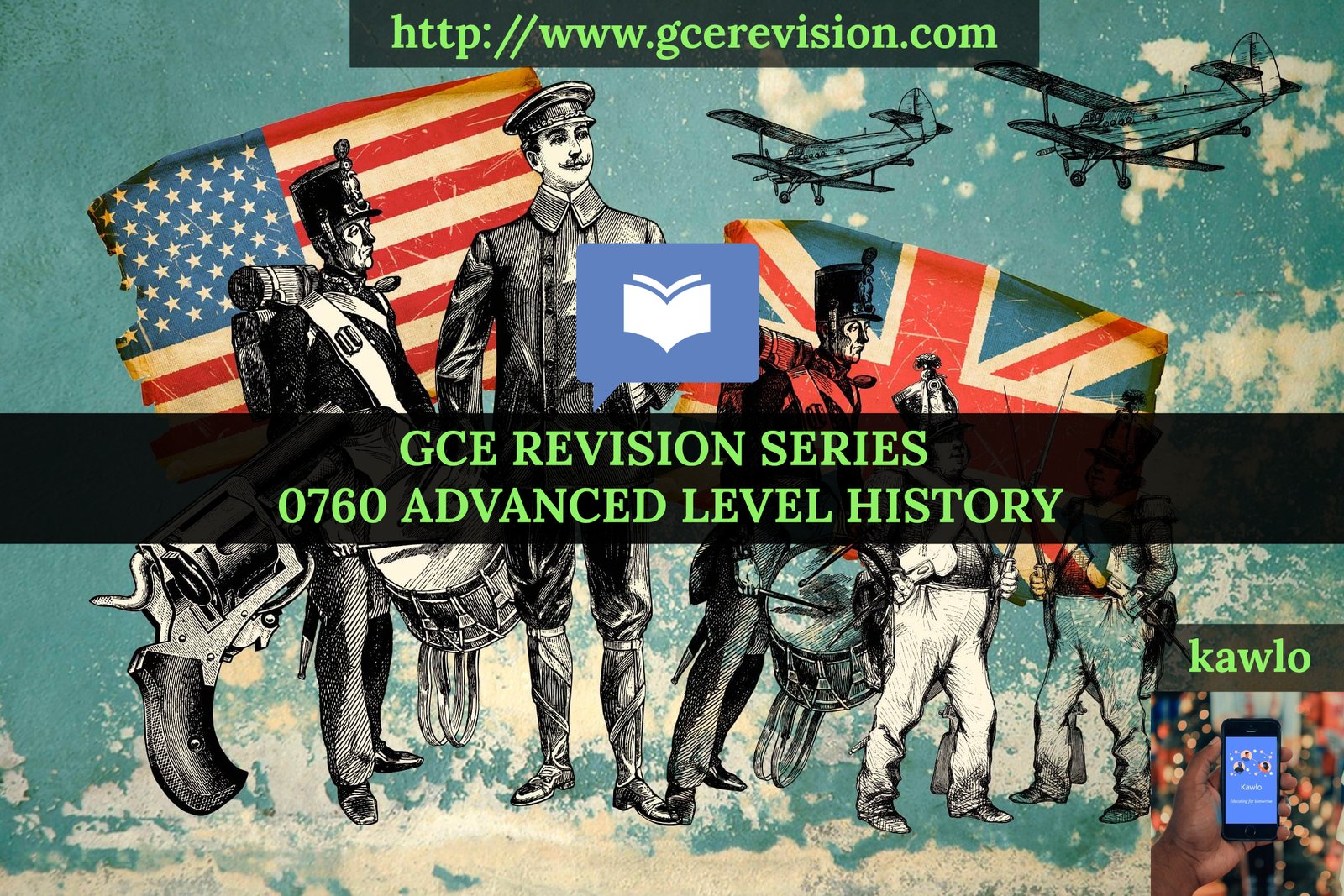Cameroon GCE ordinary level June 2025 history 2
Cameroon GCE ordinary level June 2025 history 2
SECTION A
CAMEROON SINCE 1850
Question one is compulsory. Answer either 1 A* or IB* and one other Question from this section.
Either A*
Study* this extract on the colonisation of Victoria in the 1850s and its eventual transfer to the Germans in the 1880s and answer the
questions (a) to (d) which follow. (The maximum mark for each sub question is indicated in brackets.)
...The missionary decided to move with his followers in Fernando Po to the mainland opposite the island. On 9th June...he arrived
on the mainland and named it Victoria in honour of the reigning British monarch at the time. In August the same year, he signed a
treaty with King William of Bimbia who claimed to have had unlimited powers over the land, arranging for its purchase.
...On 15th July. Nachtigal informed the British traders in the Cameroons about the treaty of annexation signed a few days ago
between German traders and influential Douala kings.When Consul Hcwett arrived in Douala, he rebuked King Bell for having 5
signed the treaty but the deed had been done.Britain and the “Too Late Consul” had to accept the fait accompli. In disappointment,
Hewett went on to Victoria and annexed it for the British government. In August 1884, Lieutenant Furlonger signed preliminary
treaties with the chiefs of Batoke for the British government.
...At the Berlin Conference of 1884– 1885, the British who wanted to protect their trading interests in Nigeria agreed to relinquish
Victoria to the Germans in exchange for their claims to the area west of Lagos. The negotiations for the exchange of Victoria were JO
conducted between a British missionary society and a German missionary society while their two respective governments provided
the required assistance.
The Victoria enclave was officially transferred from England to Germany by an Exchange of Notes of the 27th January and 31st
January 1887.The territory was effectively handed over by the British Consul to the German Governor on 28th March 1887.The
British were, however, to return to Victoria 27 years later, in 1914, this time in partnership with the French, who replaced the 15
Germans in Douala. Less than forty years later, still the European powers withdrew for good(in 1960 and 1961). The period had
become a part of history. Victoria and Douala were united within new national boundaries.
Source: Adapted from: Cameroon 1884- Present(2018). Victor Julius Ngoh and Eye Witnesses to the Annexation of 19
Cameroon(1883–1887). Shirley G. Ardener.
1 .
a) (i) Give the name of the missionary who is recognised as the founder of Victoria and the reigning British monarch
at the time, (lines 1& 2)
(ii) To which missionary body did he belong?
(iii) In which year did the missionaries move from Fernando Po to the main land opposite the Island? Line 1
(iv) State two activities carried out in the Victoria settlement by the missionary. (2+1+1+2 marks)
b) (i) What name is usually given to the annexation treaty signed between German traders and Douala kings referred
to in line 4?
(ii) Besides King Bell whom Hewett rebuked for signing the treaty, which other prominent Douala king had
signed the treaty? Line 6
(iii) Apart from annexing Victoria for the British, outline the immediate post–annexation treaty reactions carried
out by the British to assert their occupation of parts of Cameroon. (1+1+2 marks)
c) (i) In which year was Victoria finally transferred to the Germans? Line 13
(ii) Give the names of the British missionary society and the German missionary society that negotiated the
transfer of Victoria from the British to the Germans.
(iii) Give two conditions under which Victoria was transferred from the British to the Germans. (1+2+2 marks)
What event in 1914 made the British to return to Victoria, this time in partnership with the French? Line 14
Give one reason which made the British and the French to return to Cameroon in partnership, line 15.
(iii) Name the European power that withdrew from Cameroon for good in 1961.
(iv) Outline the reasons which made Douala and Victoria to unite within new national boundaries in the 1960s.
line 17
( 1+1+ 1+2 marks)











